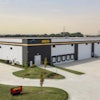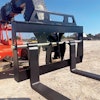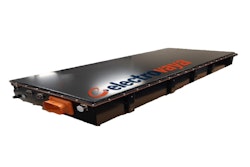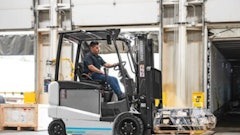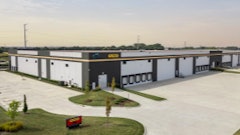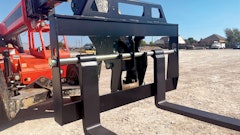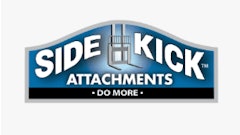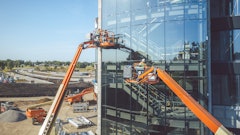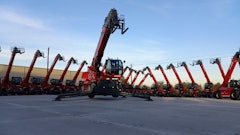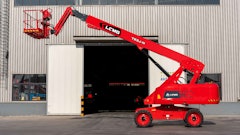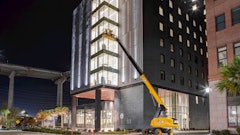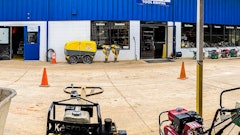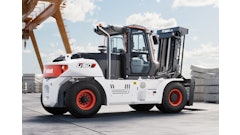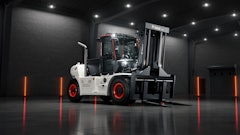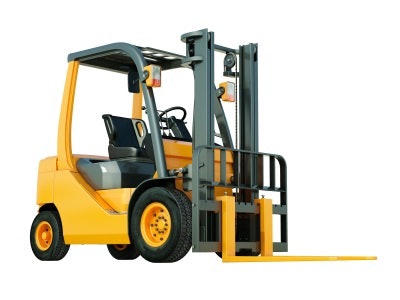
According to Cintas Corporation, one in four workplace transport-related accidents involves a forklift truck. Given the frequency of forklift accidents, workers should understand what steps to take in the event of an accident, such as how to call emergency personnel for help. In fact, OSHA requires training for forklift operators. Each operator must complete formal training that includes classroom instruction, trainer demonstrations, exercises and practical evaluation of individual operator performance. Utilizing instructor-led training, DVD programs and online courses offers a balanced approach to teaching employees. Organizations should also reinforce training with safety floor signs and wall posters.
Although most forklifts haul only around one to five tons of materials, the weight of this cargo is still heavy. Erratic driving and improper breaking, accelerating and turning can cause forklifts to crash, along with the materials they are transporting.
In addition to being trained on proper forklift operation, there are some special considerations for companies and employees who use and operate battery-operated forklifts. Below are four key forklift battery facts that can improve worker safety.
Forklift batteries expose workers to dangerous chemicals
Lead-acid and nickel-iron rechargeable batteries contain corrosive chemicals, which harm skin if a worker is not wearing personal protective equipment (PPE). Gloves, aprons, and face and eye protection are essential when handling batteries. Employees should also know how to properly clean up chemical spills.
OSHA requires businesses with battery-operated forklifts to install eyewash stations and showers
Businesses must provide an eyewash station and, in some cases, an emergency shower within a 10-second reach of battery-operated forklifts. This helps minimize the impact of injuries caused by battery acid splashes or dust and flying debris. Organizations should partner with a safety provider that can maintain the eyewash station and regularly check fluid levels.
Forklift batteries are extremely heavy and can weigh as much as 2,000 pounds
A forklift battery is much larger than a standard-sized battery. To ensure employees don’t strain themselves while handling batteries, special equipment such as a battery cart should be used when recharging batteries. Protective footwear should also be worn by employees.
Forklift batteries can emit toxic gases while charging
While charging, batteries release oxygen and hydrogen gases, which can be highly explosive if the workplace is not properly ventilated. Organizations should use fume hoods or exhaust fans to keep emissions from reaching volatile levels.

